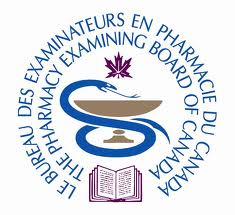Symptoms in the Pharmacy :Respiratory Problems (11)
Sore throat
Patients should see their doctor in 1 week if the sore throat has not
improved.
Most sore throats are caused by viral infections and are self-limiting
in nature with 90% of patients becoming well within 1 week of the
onset of symptoms. The pharmacist can offer a selection of treatments
aimed at providing some relief from discomfort and pain until
the infection subsides. Oral analgesics are first-line. A systematic
review found that simple analgesics (paracetamol, aspirin and
ibuprofen) are very effective at reducing the pain from sore
throat. Lozenges and pastilles have a soothing effect. There is some
evidence that benzydamine spray is effective in relieving sore throat
pain.
Oral analgesics
Paracetamol, aspirin and ibuprofen have been shown in clinical trials
to provide rapid and effective relief of pain in sore throat. A systematic
review showed no benefit of adding other analgesic constituents. The
patient can be advised to take the analgesic regularly to sustain pain
relief.
Mouthwashes and sprays
Anti-inflammatory (e.g. benzydamine)
Benzydamine is an anti-inflammatory agent that is absorbed through
the skin and mucosa and has been shown to be effective in reducing
pain and inflammation in conditions of the mouth and throat. Sideeffects
have occasionally been reported and include numbness and
stinging of the mouth and throat. Benzydamine spray can be used in
children of 6 years and over, whereas the mouthwash may only be
recommended for children over 12.
Local anaesthetic (e.g. benzocaine)
Benzocaine and lidocaine are available in throat sprays.
Lozenges and pastilles
Lozenges and pastilles can be divided into three categories:
can be divided into three categories:
antiseptic (e.g. cetylpyridinium)
antifungal (e.g. dequalinium)
local anaesthetic (e.g. benzocaine).
Lozenges and pastilles are commonly used OTC treatments for sore
throats and, where viral infection is the cause, the main use of antibacterial
and antifungal preparations is to soothe and moisten the
throat. Lozenges containing cetylpyridinium chloride have been
shown to have antibacterial action.
Local anaesthetic lozenges will numb the tongue and throat and can
help to ease soreness and pain. Benzocaine can cause sensitisation and
such reactions have sometimes been reported.
Caution. Iodised throat lozenges should be avoided in pregnancy
because they have the potential to affect the thyroid gland of the fetus.
Treatment timescale
Patients should see their doctor in 1 week if the sore throat has not
improved.
Most sore throats are caused by viral infections and are self-limiting
in nature with 90% of patients becoming well within 1 week of the
onset of symptoms. The pharmacist can offer a selection of treatments
aimed at providing some relief from discomfort and pain until
the infection subsides. Oral analgesics are first-line. A systematic
review found that simple analgesics (paracetamol, aspirin and
ibuprofen) are very effective at reducing the pain from sore
throat. Lozenges and pastilles have a soothing effect. There is some
evidence that benzydamine spray is effective in relieving sore throat
pain.
Oral analgesics
Paracetamol, aspirin and ibuprofen have been shown in clinical trials
to provide rapid and effective relief of pain in sore throat. A systematic
review showed no benefit of adding other analgesic constituents. The
patient can be advised to take the analgesic regularly to sustain pain
relief.
Flurbiprofen lozenges were
reclassified from POM to P for sore throat for adults and children
aged 12 and over. They contain 8.75 mg of flurbiprofen and one
lozenge is sucked or dissolved in the mouth every 3–6 h as required,
to a maximum of five lozenges. Flurbiprofen lozenges can be used for
up to 3 days at a time.
reclassified from POM to P for sore throat for adults and children
aged 12 and over. They contain 8.75 mg of flurbiprofen and one
lozenge is sucked or dissolved in the mouth every 3–6 h as required,
to a maximum of five lozenges. Flurbiprofen lozenges can be used for
up to 3 days at a time.
Mouthwashes and sprays
Anti-inflammatory (e.g. benzydamine)
Benzydamine is an anti-inflammatory agent that is absorbed through
the skin and mucosa and has been shown to be effective in reducing
pain and inflammation in conditions of the mouth and throat. Sideeffects
have occasionally been reported and include numbness and
stinging of the mouth and throat. Benzydamine spray can be used in
children of 6 years and over, whereas the mouthwash may only be
recommended for children over 12.
Local anaesthetic (e.g. benzocaine)
Benzocaine and lidocaine are available in throat sprays.
Lozenges and pastilles
Lozenges and pastilles
antiseptic (e.g. cetylpyridinium)
antifungal (e.g. dequalinium)
local anaesthetic (e.g. benzocaine).
Lozenges and pastilles are commonly used OTC treatments for sore
throats and, where viral infection is the cause, the main use of antibacterial
and antifungal preparations is to soothe and moisten the
throat. Lozenges containing cetylpyridinium chloride have been
shown to have antibacterial action.
Local anaesthetic lozenges will numb the tongue and throat and can
help to ease soreness and pain. Benzocaine can cause sensitisation and
such reactions have sometimes been reported.
Caution. Iodised throat lozenges should be avoided in pregnancy
because they have the potential to affect the thyroid gland of the fetus.



Comments